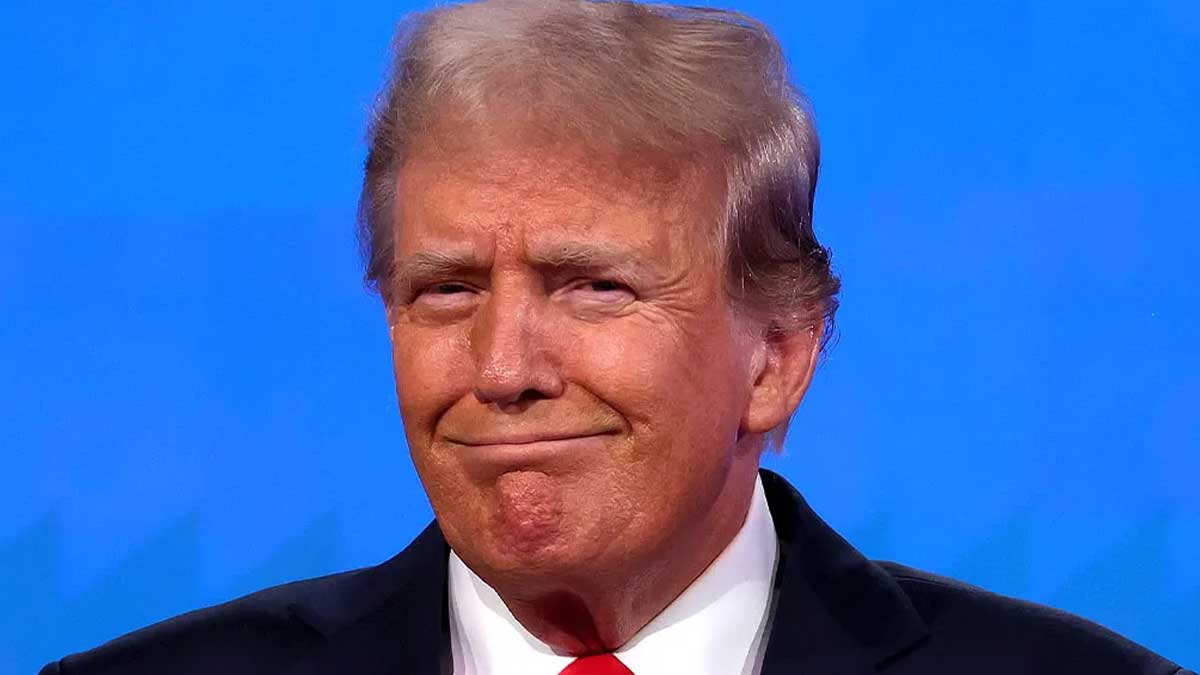- Home
- Billionaires
- Investing Newsletters
- 193CC 1000
- Article Layout 2
- Article Layout 3
- Article Layout 4
- Article Layout 5
- Article Layout 6
- Article Layout 7
- Article Layout 8
- Article Layout 9
- Article Layout 10
- Article Layout 11
- Article Layout 12
- Article Layout 13
- Article Layout 14
- Article Sidebar
- Post Format
- pages
- Archive Layouts
- Post Gallery
- Post Video Background
- Post Review
- Sponsored Post
- Leadership
- Business
- Money
- Small Business
- Innovation
- Shop
Recent Posts
Trump’s Hush Money Sentencing Delayed Until Election Season

A New York judge has granted a postponement for the sentencing of former President Donald Trump in the hush money case, following a pivotal Supreme Court decision on presidential immunity. This delay shifts Trump’s sentencing to September 18, just weeks before the 2024 presidential election, which could significantly impact the timing of his legal battles as he campaigns for re-election.
Judge Juan Merchan of New York agreed to move the sentencing date from July 11 to September 18. This adjournment will allow the court to address whether a sentence remains necessary or if other proceedings will be required. The decision to delay follows a recent Supreme Court ruling that expanded immunity protections for former presidents, potentially influencing Trump’s case. This ruling came on the heels of Trump becoming the first former president to be convicted of a crime, adding weight to the implications of his delayed sentencing.
The postponement also reflects a strategic move by Trump’s legal team, who requested the delay to assess how the Supreme Court’s immunity ruling will affect their defense. The ruling grants former presidents broad immunity for actions taken in their official capacity. Prosecutors have stated they will not oppose this request, which Trump’s team made in light of the Supreme Court’s decision. Originally, the sentencing was set just before the Republican National Convention, a critical period for Trump’s campaign. With the new sentencing date falling just after the second presidential debate, it may influence Trump’s campaign strategies and public perception.
Trump’s conviction on 34 counts of falsifying business records, related to hush money payments, occurred in late May. The trial included graphic testimony about Trump’s alleged affair with adult film star Stormy Daniels and a purported scheme to suppress negative stories about him before the 2016 election. The jury’s verdict was the result of a detailed trial process that scrutinized these payments and the business records involved. The conviction marked a historic moment as Trump became the first former president to face criminal conviction.
In response to the conviction, Trump’s legal team has formally requested to overturn the verdict, citing the Supreme Court’s recent ruling on presidential immunity. They argue that the ruling, which affirms presidents’ “absolute immunity” for actions within their core constitutional duties, should lead to the exclusion of certain evidence used in the conviction. The Supreme Court’s 6-3 decision clarified that while presidents are protected from criminal prosecution for actions taken in their official capacity, immunity does not extend to actions outside these duties. Trump’s legal team believes that both his public statements as president and the reimbursement to his former lawyer, Michael Cohen, fall under this immunity, though the court’s ruling suggested that some statements might not be protected.
The Supreme Court’s decision is expected to impact Trump’s other ongoing legal cases. Trump has asserted that he is immune from prosecution in all four of his criminal cases, including those related to federal election interference, election interference in Georgia, and the federal classified documents case. Although the Supreme Court’s ruling specifically pertains to his federal election interference case, its implications are likely to affect the timing and proceedings of his other cases.
Trump’s legal team has sought delays for these cases, aiming to push them beyond the November election. They contend that the charges are an effort by prosecutors to disrupt his 2024 campaign against President Joe Biden. Some of Trump’s cases have already faced significant delays. For instance, in Georgia, Trump and his co-defendants have challenged the felony racketeering case, alleging a conflict of interest involving District Attorney Fani Willis and her lead prosecutor Nathan Wade. Similarly, the federal classified documents case has faced delays, with critiques directed at Judge Aileen Cannon for a perceived slow pace. The trial date, initially set for May, has been moved to July, but its schedule remains uncertain following the Supreme Court’s immunity ruling.
Trump’s conviction involved 34 felony counts for falsifying business records, marking the first of four criminal cases against him since he announced his 2024 presidential bid. The prosecution alleged that Trump falsified records by reimbursing Michael Cohen for hush money paid to Stormy Daniels, aiming to conceal an alleged affair. Trump has denied the affair, pleaded not guilty, and claimed that the charges are politically motivated efforts to interfere with his campaign. Cohen, who admitted to the hush money payment and pleaded guilty to related federal campaign finance charges in 2019, remains a central figure in the case. The ongoing legal challenges will continue to unfold as Trump’s team navigates the implications of recent court decisions and the upcoming election.
Recent Posts
Categories
- 193cc Digital Assets2
- 5G1
- Aerospace & Defense46
- AI37
- Arts3
- Banking & Insurance11
- Big Data3
- Billionaires449
- Boats & Planes1
- Business328
- Careers13
- Cars & Bikes76
- CEO Network1
- CFO Network17
- CHRO Network1
- CIO Network1
- Cloud10
- CMO Network18
- Commercial Real Estate7
- Consultant1
- Consumer Tech180
- CxO1
- Cybersecurity68
- Dining1
- Diversity, Equity & Inclusion4
- Education7
- Energy8
- Enterprise Tech29
- Events11
- Fintech1
- Food & Drink2
- Franchises1
- Freelance1
- Future Of Work2
- Games141
- GIG1
- Healthcare78
- Hollywood & Entertainment186
- Houses1
- Innovation42
- Investing2
- Investing Newsletters4
- Leadership65
- Lifestyle11
- Manufacturing1
- Markets20
- Media193
- Mobile phone1
- Money13
- Personal Finance2
- Policy567
- Real Estate1
- Research6
- Retail1
- Retirement1
- Small Business1
- SportsMoney33
- Style & Beauty1
- Success Income1
- Taxes2
- Travel10
- Uncategorized8
- Vices1
- Watches & Jewelry2
- world's billionaires418
Related Articles
Trump Moves $4B Stake in Truth Social Parent, Stock Drops 6%
Donald Trump recently transferred his 57% stake in Trump Media & Technology...
By 193cc Agency CouncilDecember 20, 2024House Rejects Trump-Backed Funding Bill, Shutdown Looms
The U.S. House of Representatives rejected a new government funding bill on...
By 193cc Agency CouncilDecember 20, 2024Trump Named Time’s Person of the Year for Second Time
On Thursday, Time magazine honored Donald Trump as its “Person of the...
By 193cc Agency CouncilDecember 12, 2024Meta Donates $1 Million to Trump’s Inaugural Fund
Meta, the parent company of Facebook and Instagram, has confirmed a $1...
By 193cc Agency CouncilDecember 12, 2024















Leave a comment